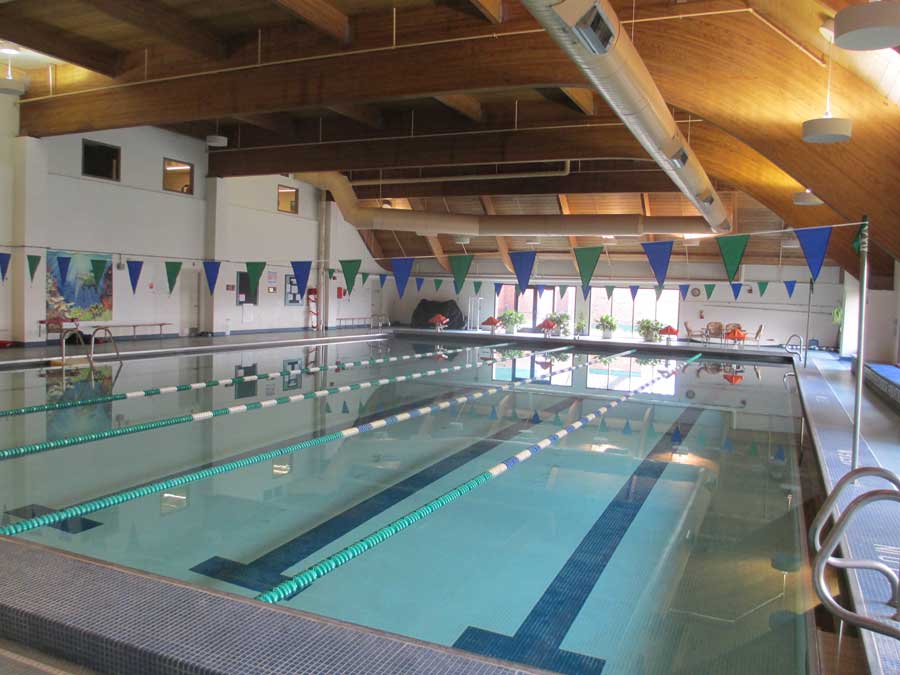Pool saved: funds secured to replace climate control system
The S.H.A.P.E. pool: destined for closure?
After months of speculation and the possibility of the Johnson State College pool closing for good, the college announced Friday, Nov. 14 that its pool would remain open but would need to close temporarily pending replacement of its aging humidification system.
The pool closed Tuesday, Nov.18, following the Nov. 8 failure of the compressor that runs the rapidly failing Zephyr system.
College officials say it is pointless to spend the estimated $25,000-$30,000 to repair the compressor when it would be, at best, buying maybe a few weeks before work begins on the new system.
According to the Nov 14. announcement, “The College has been approved for a long-term loan from the Vermont State College’s “Green Revolving Fund” to replace the pool’s existing, malfunctioning dehumidification and heating unit with a new, energy-efficient system at a cost of about $265,000.”
The funding comes from one of the sources identified by a committee convened at the end of the summer to seek sources for replacement of dehumidification/heating system, which was installed in the mid-1980s.
According to Dean of Students Dave Bergh, the head of that committee, the group explored a number of options, including seeking grants from outside agencies, increasing membership fees, accepting donations, and applying to the Green Revolving Fund, which Bergh said was a “great candidate.”
According to Bergh, Johnson already spends about $60,000-$70,000 annually in repairs on the pool, on top of the $80,000 it costs per year just to run it. On the bright side the new model will be more energy efficient and save around $20,000 per year.
The pool hosts swim lessons, physical therapy, senior and adult swim classes, water aerobics, general lap use, and is also used in some Outdoor Education classes. Bergh noted that because there are no other pools open to the public in this immediate area, the closing of the college’s pool would have repercussions beyond the campus. “This is a resource worth preserving,” Bergh said, noting that its closing “would have a detrimental effect on our relationship with the community.”
In April 2012, the Vermont State Colleges board of trustees, created the VSC Green Revolving Loan Fund, which is to be used to promote and support energy saving initiatives proposed by the five state colleges: Johnson, Lyndon, Castleton, Vermont Tech and CCV.
Under the terms of the fund, colleges have five years to pay back loans, including principal and interest








